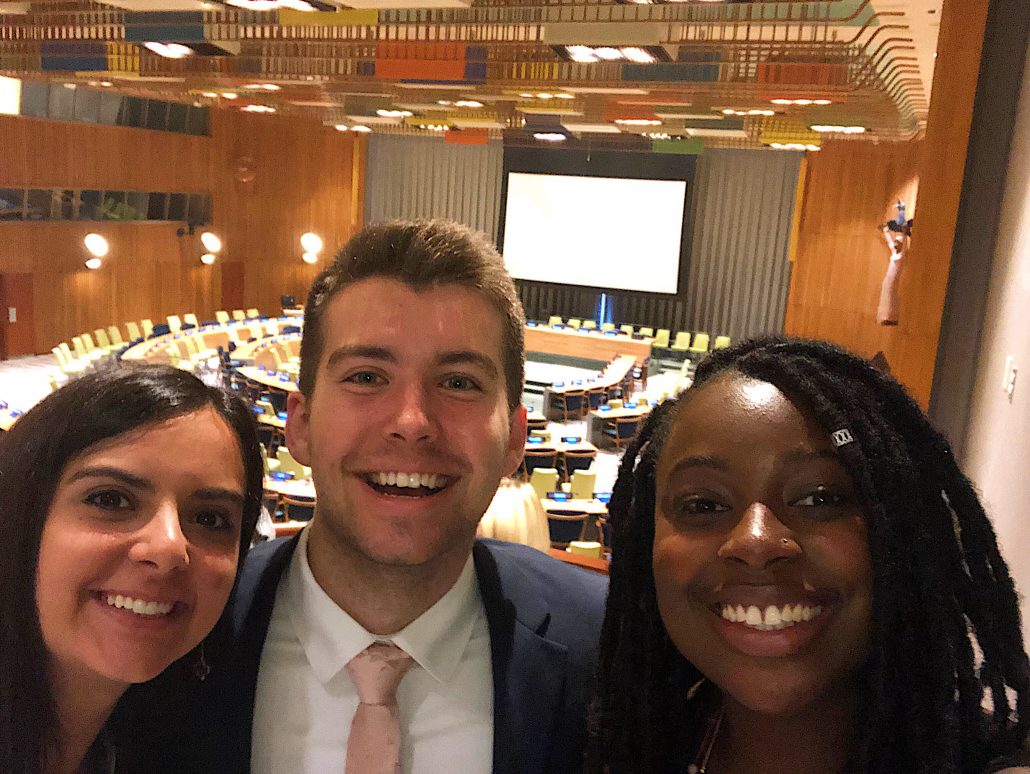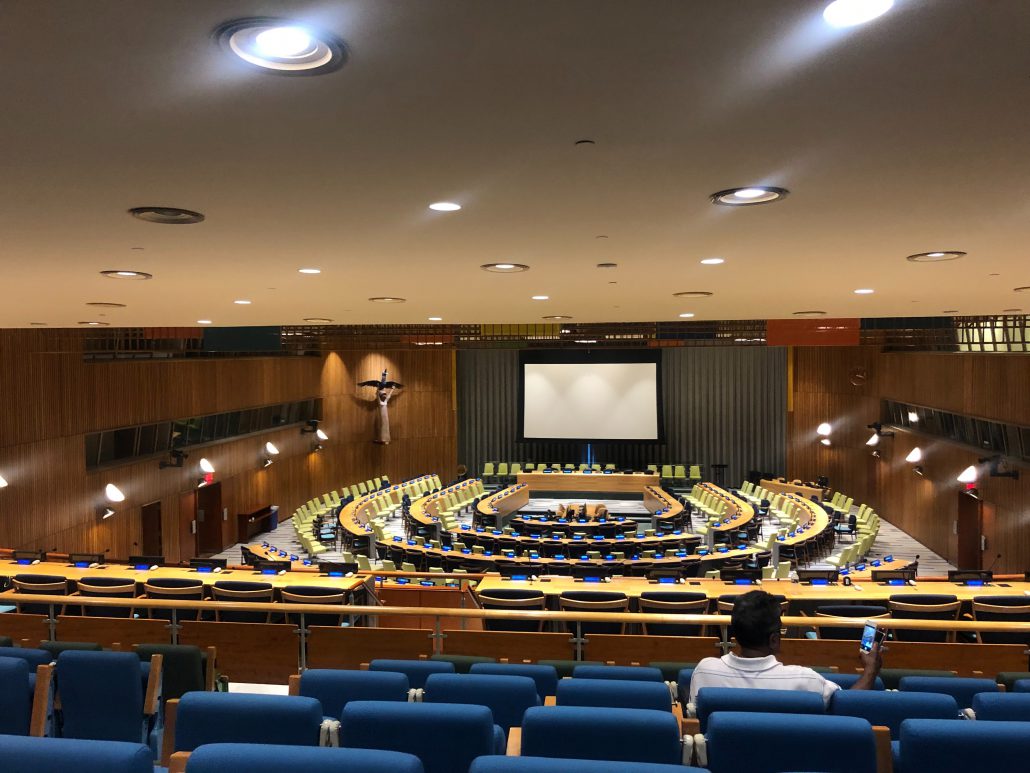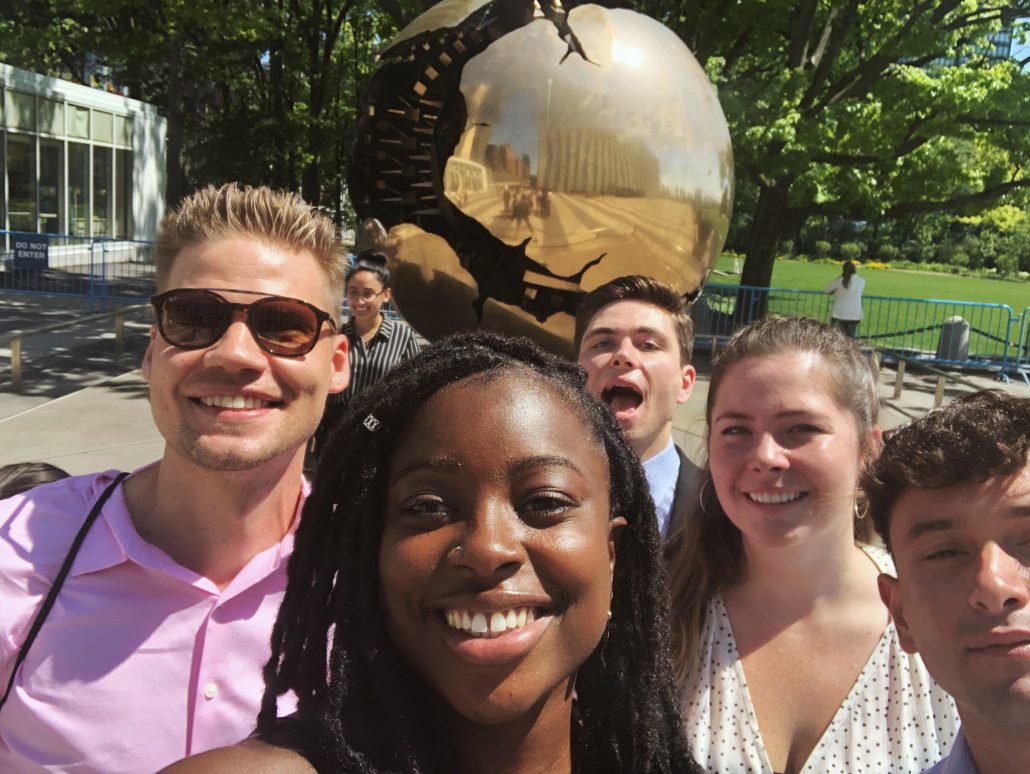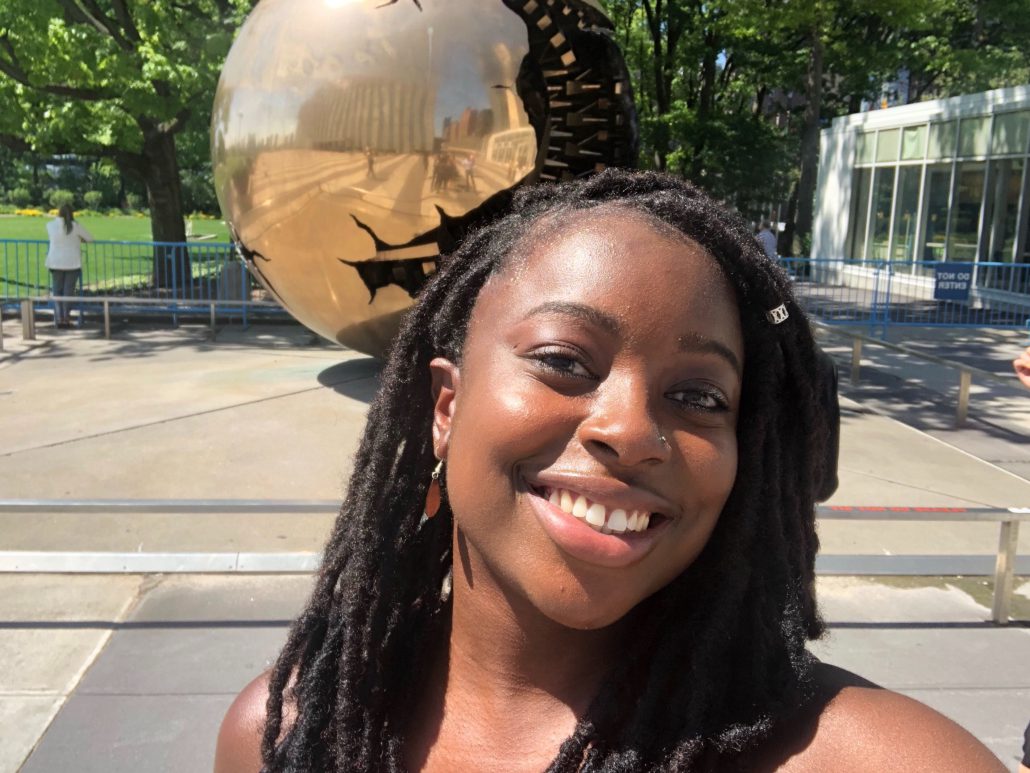By Kyra Baffo
Our first excursion was a goody.. We got to explore one of the most influential international bodies to ever be created. The United Nations was formed in response to the widespread devastation of the World Wars, and in the hopes of creating a platform for dialogue and international peace and stability between the post-war global powers and original members of the General Assembly. For those who are unfamiliar with the set up, The UN is divided into 6 main organs: The Security Council, the General Assembly, The Secretariat, the Economic and Social Council (ECOSOC), Trusteeship Council, and the International Court of Justice (ICJ).

Most of us are familiar with the Security Council, the most powerful voice within the institution. The Council has 15 members, 5 are permanent (The U.S, China, Russia, France, and the UK) and 10 are non-permanent rotating members. Together, the Security Council is responsible for maintaining international peace and stability, and is given sweeping privileges to employ force in achieving those efforts. However, the permanent members exert absolute control over the agenda and what actions the institution can undertake. If any one of the permanent members casts a veto- the action is effectively dead.

It quickly became apparent that the power of the veto has been an ongoing point of contention and debate both within the UN and among critics who feel like the system prevents meaningful action from ever being taken. One great example of this is in regards to human rights abuses. China, (a country that employs an onslaught of human rights violations- especially the current crisis in Xinjiang), is known to be on the defensive when it comes to addressing human rights abuses, and generally emphasizes the important of national sovereignty. That plays into a larger issue within the institution- the geopolitical divides that constitute the Security Council. China and Russia are the only powers that represent the Eastern, often ‘anti western bloc’, whereas the U.S is paired with France, and the UK. This is the perfect recipe for gridlock, and resistance towards unified action in a variety of politically charged crises- a problem that has received widespread attention from frustrated members of the GA and critics of the UN.

So, what were the main takeaways from our trip to this vast institution? Well for one, the UN is an incredibly important body. The world organization represents 193 nations, and fosters important initiative under bodies like ECOSOC that work towards global standards for human rights, gender equality, health, the environment, and economic development. Forums and conferences held by the organization create a platform for leaders, diplomats, and ngos to discuss the most prevalent issues facing our world. Notwithstanding, however is the lack of enforcement power that the organization actually has. Though many heinous crimes and abuses are enshrined in international law, that carries virtually no ground in our Westphalian world where concepts of state sovereignty take priority.

The most surreal issue facing the institution though, resides in its obsolete structure. As countries that have historically been confined to the Global South continue to see substantial economic growth, so too will their desire to have a greater influence within the organization. Countries like Brazil and India are the most obvious examples. Will the institution undergo structural reforms that will help expand the Security Council? Or, perhaps give more weight to the General Assembly? These were the concerns most widely discussed in our analysis of the UN. How will the world organization progress into a rapidly changing geopolitical arena? One can only speculate.
Kyra studied abroad in New York in Summer 2019. https://ieo.ucla.edu/travelstudy/GlobalStudies-NewYork



